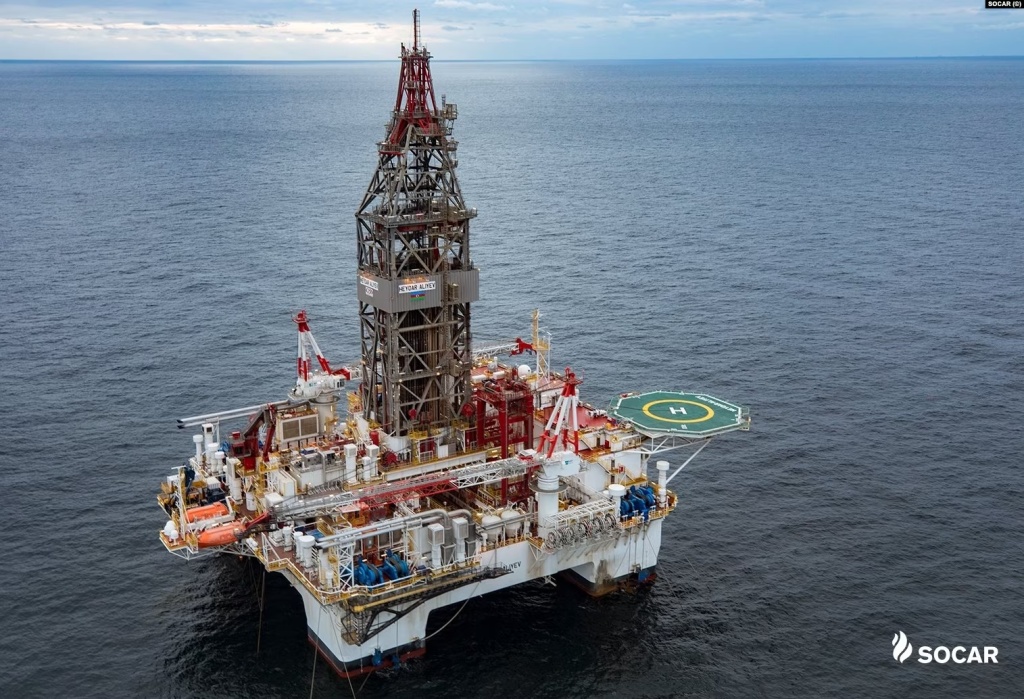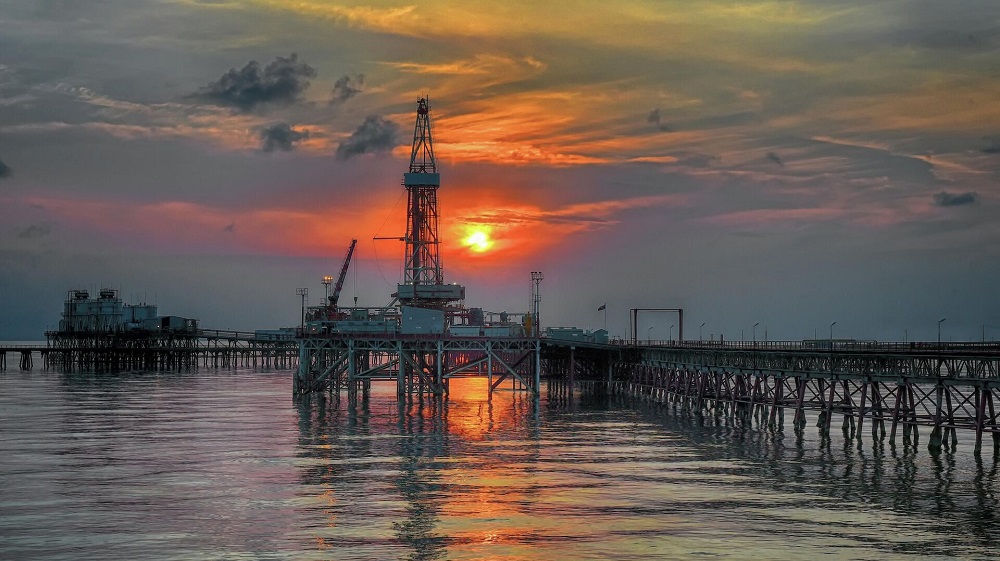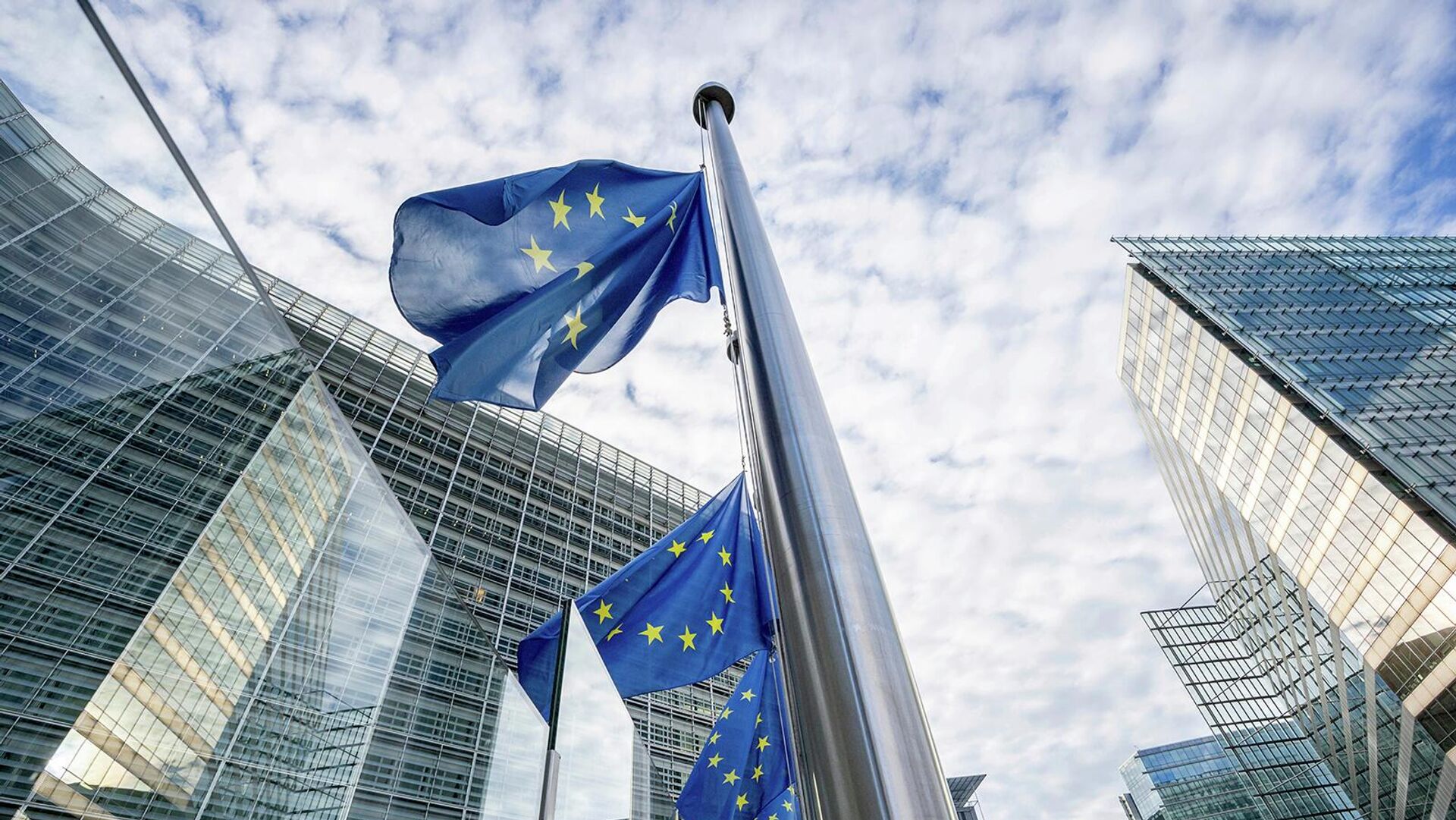[ad_1]
Azerbaijan and the Balkans
Against the backdrop of Azerbaijan’s recent military success, which resulted in the de facto capitulation of the unrecognized Armenian-created republic of Nagorno-Karabakh, Baku’s other offensive – economic – remains less visible. Azerbaijan has recently extended its influence primarily as a raw material to Central Europe and the Western Balkans.
Radio Liberty considered the question – what consequences can this have?

Will Baku warm up Belgrade and Tirana?
Azerbaijani President Ilham Aliyev’s little-publicized visits to the capitals of several European countries last fall and this spring yielded interesting results. In Tirana last November, Aliyev announced the decision to open an Azerbaijani embassy in the Albanian capital and to supply Albania with 200 million m³ of gas for a new thermal power plant. In December, the Azerbaijani leader heard Serbian President Aleksandar Vucic in Belgrade say that Aliyev and his country are “reliable partners not only for us, but for everyone (in the Balkans)… We must sign agreements, but Ilham Aliyev’s word is enough for us. .”
In April, a strategic partnership agreement between the two countries was concluded following a meeting with the President of the Presidium of Bosnia and Herzegovina (BiH), Zeljka Cvijanovic, in Sarajevo. The relevant structures in Baku are responsible for studying the prospects for the delivery of Azerbaijani gas to Bosnia and Herzegovina. During this period, the Azerbaijani leader also held talks with the presidents of Bulgaria and Romania, the prime ministers of Croatia and Montenegro and two meetings with Hungarian Prime Minister Viktor Orban, with whom Ilham Aliyev has a long-standing political partnership. date. The agenda of Aliyev’s talks with the leaders of regional countries was not limited to gas issues, but also included politics. It is possible, the agency notes, that the Azerbaijani president was chosen as an additional “shadow” mediator to resolve the Kosovo problem. There is no official confirmation on this.
Azerbaijan is not a newcomer to the economic and geopolitical game, both in the post-Soviet space and in other regions. The Regional Organization for Democracy and Economic Development (GUAM), established in 1997 and including Georgia, Ukraine, Azerbaijan and Moldova (from 1999 to 2005, Uzbekistan was also a member), said as one of its main objectives the weakening of the economic and energy sectors. dependence on Russia. This meant the development of energy transit along the Asia (Caspian) – Caucasus – Europe route, bypassing Russian territory. The activities of GUAM were gradually suppressed, but with the beginning of Russian aggression against Ukraine, the ideas put forward by the founders of the organization began to take on new life. The countries of the European Union have shown themselves to be extremely interested in alternative energy sources to those in Russia and in the means of transporting them.
Europe wants reliability. What will Moscow say?
Already in July 2022, Ursula von der Leyen, President of the European Commission, arrived in Baku and said to Ilham Aliyev: “Thank you for supporting the European Union. Because even before Russia’s inhumane invasion of Ukraine, Russian gas supplies to Europe were no longer reliable. The European Union has decided to diversify its supplies of Russian gas and turn to more reliable and trustworthy partners. And I am happy that Azerbaijan is one of them. You are indeed our most important energy partner and you have always been reliable. As a result, the European Commission signed an agreement with Baku to double Azerbaijani natural gas imports by 2027 and increase its volume to at least 20 billion m³ per year over 15 years.

Shortly after, in October 2022, the Greece-Bulgaria Gas Interconnection (IGB) was launched, bringing Azerbaijani gas to Bulgaria. Besides the fact that the IGB significantly reduces Bulgaria’s dependence on Russian gas, the new energy branch, with an initial capacity of three billion and a nominal capacity of five billion m³ per year, will be able to supply neighboring Serbia and North Macedonia. , Romania and, in the future, Moldova and Ukraine in gas. Gas operators from Bulgaria, Romania, Hungary and Slovakia immediately offered to transport increased volumes of Azerbaijani gas through their networks to Central Europe.
Experts also highlight other promising projects for the development of Azerbaijan’s energy ties with the Balkan countries. This is the Ionian-Adriatic Pipeline (IAP), which will be able to transport Azerbaijani gas from Albania to Croatia via Montenegro and Bosnia, and then supply it to Central Europe. In the long term, Azerbaijan wants to improve the efficiency of the Trans-Caspian international transport route, also called the Middle Corridor. It connects Central Asia and Europe via Kazakhstan and the Caspian Sea and crosses the Balkans. The project to transport electricity from Azerbaijan to Romania and eventually to Central Europe via a 1,200 kilometer long cable under the Black Sea is extremely large-scale. Azerbaijan, Georgia, Romania, Hungary and Romania have provisionally agreed to create such a “green corridor”.
“You are our most important energy partner”
In August this year, Viktor Orban and Ilham Aliyev agreed that Hungary would purchase 100 million m³ of natural gas from Azerbaijan by the end of the year, and in the following period this volume would reach 1 billion of m³. Supplies will transit through Turkey and the Balkans. Azerbaijan rewards Turkey and Hungary with energy deals, experts say, because the former is Baku’s guide to the Balkans and the latter is a bridge to Central Europe. Currently, Baku has concluded agreements of one form or another on the supply of gas with Albania, Bulgaria, Hungary, Romania, Serbia, Slovakia and Croatia.
Are all these actions and projects a game against Moscow? Azerbaijan, writes Baku-based analyst Fuad Shahbazov, has adjusted its foreign policy agenda to focus on the Balkan region, which is more vulnerable to the energy crisis than the states of Central and Western Europe. While major EU countries manage to compensate for energy shortages by exploiting their energy reserves, resorting to alternative energy sources and importing additional volumes of gas from alternative suppliers, less developed EU states Balkans struggle to adapt to energy shortages.
Since the start of the war in Ukraine, demand for Russian gas has continued to decline. According to the International Energy Agency, pipeline exports of Russian gas to the European Union fell by 75% to just over 10 billion m³ in the first half of 2023. For comparison, the same volume of Azerbaijani gas is transported each year to Europe via Greece and Albania. only via the Trans-Adriatic Pipeline (TAP), in service since 2020.
Who is against?
Azerbaijan’s confident energy march on world markets also attracted the attention of the world community to the old painful problem of this country – violation of human rights. Immediately after Ursula von der Leyen’s visit to Baku, fifty French politicians from different parties signed an open letter in which they warned that by choosing Azerbaijan as a gas supplier, the President of the European Commission was weakening the European Union. According to the authors of the letter, written before the current victorious phase of the Karabakh conflict for Baku, the Ilham Aliyev regime is using revenues from gas sales to arm more and aggravate the situation in Nagorno-Karabakh. Furthermore, the EU’s Azerbaijani decision is rooted in the past, the signatories of the message say. They believe that this goes against the European Union’s energy transition plans and its demands for a more sovereign energy policy.
- The regularly updated list of political prisoners in Azerbaijan includes around a hundred names. These include journalists, members of opposition parties and movements, religious activists and even political emigrants expelled from abroad. Azerbaijani authorities deny the existence of political prisoners in the country.
According to gas specialist Gligor Radečić of the non-governmental organization Bankwatch Network, the EC deal with Azerbaijan contradicts both the EU’s climate goals and its human rights standards. Furthermore, the expert notes, few people mention that the critical infrastructure needed to extract and transport gas from the Caspian Sea to Europe is co-owned by Lukoil, a Russian oil and gas giant with close ties with the regime of President Putin.

Philippe Dam, director of Human Rights Watch’s Europe and Central Asia division, warns that Europe has missed a major opportunity to prioritize human rights in its partnership with Azerbaijan. The EU-Azerbaijan deal benefits the government but “does not guarantee any human rights protections,” Dam told Fortune. “Independent activism, critical journalism, and opposition political activity in Azerbaijan have been virtually destroyed,” Human Rights Watch said.
Referring to the outcome of the Nagorno-Karabakh conflict, Bernard Guetta, French journalist and former correspondent of Le Monde in Moscow, now a Member of the European Parliament, writes: “Should we not start by understanding that, thanks to our common efforts, we are no longer dependent on Baku’s oil and can force Azerbaijan to respect all the rights of the Armenian minority because Baku needs our money?
- Karabakh is considered by international law to be part of Azerbaijan. The region’s population was predominantly of Armenian origin. Since the early 1990s, Baku no longer controls a large part of the region, where armed conflicts periodically break out. Representatives of the Armenian community proclaimed an independent republic there, which was not recognized by any country, including Armenia.
- On September 19, Azerbaijan launched a new military operation (before that, military clashes in the region took place in spring 2016 and late 2020) against the unrecognized republic of Nagorno-Karabakh, where tens of thousands of people lived. ‘Ethnic Armenians. On September 20, the leaders of this unrecognized region capitulated on Baku’s terms. The Azerbaijani authorities have declared themselves ready to negotiate the reintegration of the Armenian population of Karabakh.
- Despite these statements by Azerbaijan, a mass exodus of the Armenian population from the region to Armenia began. According to data from the authorities of this country as of September 30, more than 100,000 people arrived from Karabakh. Armenian Prime Minister Nikol Pashinyan has called the mass exodus of Armenians from Karabakh “ethnic cleansing” and “deportation.” In response, the Azerbaijani Foreign Ministry said that from the beginning it had urged residents of the region to stay at home and begin the process of reintegration into Azerbaijani society.
[ad_2]
Source link



